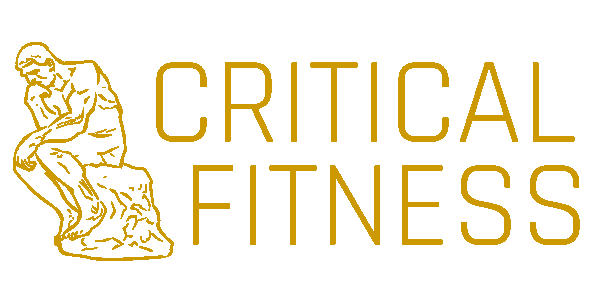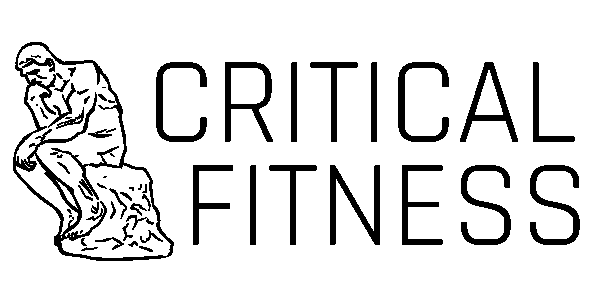There’s been a big increase in the popularity of bodybuilding and figure competitions in the last few years, and with it a resurgence in steroid use. And personal trainers could play an important role in either enabling, or discouraging, this potential destructive behaviour. Today we discuss how.
The range of categories in these competitions has expanded, to allow more people to take part in the sport *. And these participants often want to get bigger. In some cases, a lot bigger than training and a balanced diet alone would allow them to be.
But not everyone can get big enough to be competitive on stage.
If you can’t get that big, the common joke is that anyone bigger than you must be on steroids. And those big guys? They will say anyone smaller than them just isn’t working hard enough.
That isn’t true, but we prefer to credit our own hard work than accept that we won a genetic lottery. As we know, not everyone responds the same way to resistance training. In fact, some people barely respond at all, no matter how hard they train.
These “non-responders” may experience no noticeable muscle growth. Others will experience some, but not enough to be competitive.
So when you want get bigger, and it just isn’t happening, what do you do?
Some of us just shrug and make the most out of our physical gifts (or lack of!). Others may use anabolic steroids to get some extra muscle growth.
What are steroids, and how do they work?
Steroids are synthetic drugs that mimic the role of testosterone in the human body, and promote muscle growth.
They are tightly controlled drugs, prescribed by doctors to treat a range of medical conditions. They can be used in some cancer treatments, or to replace muscle mass lost due to illness. More recently, they’ve been used to treat some of the age-related decline in bone density, muscle mass, and sexual function that occurs in men.
Those chasing extreme muscle gain will use higher doses, as the effect of these drugs follows a typical dose-response curve. The more you take, the more you grow.
It may sound strange today, but the benefit of steroids was unclear for a long time. While they’ve been used in sport since the 1950s and 60s, it was only in the mid-70s that the performance enhancing effects were well understood, and sports started banning them, and testing.
But the recreational user has no such restrictions, other than the legal status of the drugs.

Recreation steroid users don’t need to worry about the drug testing seen in sport. The potential health effects are another issue, of course!
Side effects of steroid use
Getting bigger isn’t a bad thing on its own. In fact, we usually encourage people to get stronger, and chase performance goals, as a positive pastime. Personal trainers make a career out of it! But it’s the potential negative effects on our health that means these drugs are so carefully controlled.
Some of these negative effects are well known. Acne is a common short term side effect, while high blood pressure, and increased risk of stroke and heart disease are observed long term. Mental health problems, difficulty sleeping, and increased aggression are also reported.
And there are sex-specific changes, like gynecomastia (breast development), testicular atrophy, and impotence in men, and baldness and body hair in women.
Most steroid users think their use is moderate enough not to lead to these sorts of issues. Many are wrong. This is a common bias – just like most of us think our alcohol consumption is more moderate than it really is.
Who uses steroids?
Steroid users are mostly males in their 20s and 30s, with good incomes. Not surprising really, given the social pressures young men will experience to look fit and strong. And it’s not a poor man’s game… steroids can be expensive.
A 2014 global analysis identified about 3.3% of people will use steroids during their lifetime, making this a significant public health issue.
This steroid use is associated with poor self-esteem, and other mental health issues such as body dysmorphia, disordered eating, depression, and even suicide. And depression is a possible cause of steroid use, as it often precedes the use of these drugs.
It is also more likely among younger people with poorer health knowledge, and those under pressure about their body shape from parents or coaches.
Obviously, we are most likely to find steroid users in their natural habitat, the gym. But not all gyms. Numbers vary wildly from no-one, to 58% of patrons, depending on the gym.

What role do personal trainers play in steroid use?
We know that steroid users almost always have an association with another user before they start using themselves. And we know that gym employees often provide this introduction.
Personal trainers are role models in the gym, and can influence people for better or worse. Not only can trainers provide steroids in a gym, but they could also provide the social support that encourages and reinforces their use.
While you don’t need to have direct contact with a dealer anymore (these drugs can be found online), the information about what to take, and how, and the social pressure to do so, can still come from role models in the gym. In fact, gym contacts are still the main source for about a quarter of users.
As we’ll discuss later, trust in medical professionals is quite poor. So unscrupulous personal trainers have an opportunity to fill that void with information.
Unfortunately, this far exceeds the scope of a fitness professional’s qualification. The fact that personal trainers may play a role in encourage steroid use is disturbing, as you’ll find out when we explore some of their other effects.
But there is very little research looking specifically at the role and attitudes of personal trainers regarding steroid use. How much of a positive or negative influence they are is unknown. **
Decisions about steroid use
Those using steroids may not accurately weight up the risks and the benefits of their actions. To them, the benefits outweigh the risks. They’re huge now! Who cares about later?
But this isn’t a surprise. As a rule, we are all terrible at assessing risk! Just have a look at how some people are hypervigilant about the potential side effects of safe, controlled, prescribed medication, but are not at all concerned about the illnesses they treat or prevent!
In fact, the survey from the UK we referenced earlier also reported lower levels on condom use among sexually active steroid users. Clearly, they are making different assessments of risk than the rest of us!
Bodybuilders may argue that the risks are exaggerated. It has even been suggested in one paper that they are exaggerated to dissuade potential users. But this appears to be a minority opinion.

Shocking, I know! Steroid users may take more risks than the rest of us!
Sources of information about steroid use
This probably won’t shock you, but the sources of information steroid users rely on are usually poor: magazines, friends, other users, dealers, etc.
First-hand experience was trusted more than academic or medical knowledge.
In fact, very few users talked to health professionals at all when making the decision to start steroid use. They felt that doctors wouldn’t give them the information they wanted, so weren’t trustworthy! They were more likely to trust their dealer (who had a financial interest in their use).
Steroid users don’t trust medical professionals
Don’t you think it’s strange that someone would trust an uneducated dealer, with a conflict of interest, over a medical professional with decades of training and experience?
But as strange as it sounds to us, most steroid users will never reveal their drug use to their doctor. Many reported feeling discriminated against because of their drug use, which gives us some insight into why this trust is so poor. It highlights the importance of a doctor providing care without judgement.
This mistrust can have serious health consequences. Only 35% of steroid users will engage with health professionals when experiencing side effects. And many of those that do still won’t be entirely honest about their drug use. In fact, honesty is so rare that when it did happen, a doctor wrote a paper in an academic journal describing his experience!
A case study in long-term steroid use
A case report recently published early in 2021 explores some of the long-term consequences of steroid use.
The 56-year-old male reported on had used testosterone for 30 years, and a wide array of supplements. What these were was not reported in this paper.
He had a BMI of over 35, which would put him comfortably in the obese category. But remember that BMI is not a test of body composition, only size. This guy had visibly low body fat… in other words, he was big.

This paper didn’t report the height and weight of the subject. But you can get an idea of his size based on his BMI, as illustrated here. Source: https://healthtravelguide.com/bmi-calculator/.
His blood pressure was borderline. Blood tests showed he was diabetic, despite his low body fat and high exercise levels. His cholesterol was high. There was some hypertrophy of the left ventricle of his heart (a change associated with blood pressure and diabetes).
Despite 30 years of illicit drug use, he refused statins to help lower his cholesterol!

Why didn’t he want to take statins?
As mentioned earlier, we are often bad at assessing risk. And we are heavily influenced by our biases.
In this case, we don’t know what’s going through his head. His reasons weren’t reported. Maybe his refusal of the medication was as simple as seeing this as another opportunity to demonstrate mastery of his body, this time by reducing his cholesterol through his food and exercise choices.
But maybe this was a result of his biases. For some reason, many people in the health and fitness industries have a bias against medical intervention.
They prefer interventions (dare I say it) that are more natural. Interventions like exercise, that fit with their preferences. Medication might be seen as unnatural, giving up, or a lazy option, compared to lifestyle interventions.
And of course, the guy that’s been sticking needles in his butt for a few decades wants to be “natural”. He couldn’t possibly take a medication! WhAt AbOuT tHe SiDe EfFeCtS?
Aren’t case studies bad science? Why not rely on better research?
Defenders of steroid use may criticise a case report like this as bad science. They might even criticise the other research I’ve linked to, as it’s mostly in the form of surveys.
We rely on randomised control trials for other research, why accept such low-quality methods here, when looking at the long-term effects of steroid use?
There are several reasons why a case study like this can be compelling, in this situation.
First, as we discussed above, most users do not trust, and are not honest with, medical professionals. Getting a full medical and drug use history may be difficult.
And given most steroid users will use a combination of drugs, accurately determining of long-term effects of any one drug is quite hard.
Secondly, it would be impractical to do a randomised trial over 30 years! Your participants would all drop out as they died, moved overseas, and changed habits. Not to mention the huge cost, and massive volume of work for the researchers (assuming their career even lasted long enough).
Thirdly, it’s unethical.
Can you imagine trying to explain this research to an ethics review board at a university?
“We’re going to take a bunch of volunteers, and randomly assign half of them to take a medication, in a way that we already know is dangerous! Then we’ll see what happens!”
If we already have a good idea this is bad for us, we don’t expose people to it. And certainly not for a long period of time like this. While it wasn’t always the case, these days the welfare of research participants is paramount.

What is the value of case studies?
We’ve referenced two case studies in this article, discussing one at length. And despite them only providing a very small snapshot of a much bigger issue, they play an important role.
And this is in the story they tell. Many of us are not convinced by scientific research. It’s too abstract, it’s hard to read, and we don’t see how much of it applies to us.
Instead, many of us are convinced by the personal story. Especially when that story comes from someone close to us. If that story contradicts the scientific evidence, we might disregard even the strongest evidence. In this case, it supports other, stronger evidence.
And now some cherry-picking!
At least, that’s what some critics will say. And they would be right, if these incidents weren’t consistent with the large body of research we’ve discussed up until this point.
There are plenty of case studies illustrating the risks of this drug use. Many of them are tragically young. Here are just a few:
- Mike Matarazzo died at age 48, in 2014, while waiting for a heart transplant. He admitted steroid use
- Rich Piana collapsed, and later died, at age 46, in 2017. An autopsy showed significant signs of heart disease
- Dallas McCarver died of heart disease at age 26, in 2017. He had an enlarged liver and kidneys at the time of death, and steroid metabolites were found in his blood
- David Dearth, died of a heart attack following surgery, aged 56, in 2019. He also admitted steroid use
- Scott Milne died in 2020 of a heart attack, at age 46. He had previously been convicted of trafficking steroids
- John Meadows died at age 54, in 2021. He had suffered a heart attack 18 months earlier, and died of a blood clot. He also admitted steroid use.
Anyway, don’t use steroids, ok kids?
* I’m not sure a competition to see who looks the biggest, strongest, or fittest is genuinely a sport, but we’ll overlook that for now.
** If you are aware of some research I’ve missed in this article, let me know. I’d gladly update it to fill these gaps.



Recent Comments